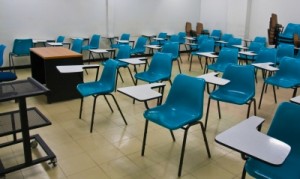The government’s intended move towards an ‘English Baccalaureate’– a one-certificate suite of qualifications intended to replace GCSEs in several core subjects – is proving controversial. English Baccalaureate (or ‘EBacc’) certificates will be awarded for the first time in 2017 – affecting students currently in Year 7 and below.
Which subjects will the Ebacc cover?
The Ebacc will cover achievement in English, mathematics, sciences, a language and history or geography. Controversially, many’ less academic’ subjects have been left out. Creative and practical subjects such as Art and Design, Food Technology and drama are absent. Religious Studies teachers have expressed concern at the inclusion of geography and history rather than a broad humanities category.
It is certainly the case that all good schools should offer all of the subjects embraced by the EBacc to all students at Key Stage 4 (Years 10 and 11). It has been demoralising to see the dismantling of Modern Foreign Languages provision at GCSE level, but on the other hand, it would be a shame to see a return to compulsory GCSE languages without a huge sea-change in how language learning is approached earlier in the curriculum.
Should the EBacc embrace a wider curriculum?
From 2017, only those subjects covered by the English Baccalaureate will count towards schools’ league table statistics. Critics argue that the certificate should therefore embrace creative and practical subjects. The French Baccalaureate, on which this version is ostensibly modelled, includes sport, music, art and so on. All good teachers and educators know it is essential to celebrate the achievements and skills of all young people, not just those who are academically gifted. The French system covers a far broader range of subjects which are then weighted according to one of three streams (general, professional, technological). Surely a broader base would allow for a greater chance of benchmarked success for a greater number of students?
One of the greatest challenges facing our society in the next couple of decades is the predicted obesity epidemic, so it seems crazy to exclude subjects such as PE and Food Technology. Of course these subjects will still be available at GCSE level in many schools, but by excluding them from the league tables, the government is giving the impression that these are less worthy areas of study. The requirement to pass ‘rigorous examinations’ in not one but TWO science subjects but no practical subjects is a further indicator of the unbalanced curriculum offered by the EBacc.
The likely effects of the EBacc
Less academic students and those with specific learning difficulties already feel excluded from the curriculum; far fewer of these students will achieve the standard required in the EBacc’s narrow selection of subjects. Many teachers fear this will lead to disaffection at an early stage, resulting in more NEETs than ever before.
Schools will inevitably pour resources into the core EBacc subjects and neglect those which are excluded. When the previous government removed the compulsion for all students to study a modern foreign language at GCSE level, the effect was that many, many schools removed the opportunity to study any foreign language after Year 9. This slice of curriculum history suggests that pupil choice will very likely be reduced as schools scramble to achieve a good placing in the new EBacc league tables. Students who may have excelled in art or drama may well be forced to study German or history in order to scrape a pass in the English Baccalaureate.
So whilst it is encouraging to see modern foreign languages and (some) humanities subjects being valued once more, it is a shame that this has been done at the expense of other subjects. The government needs to move towards an inclusive system of measuring performance that embraces all subjects. In short, some effort has been made but we could do so much better.
Update: it was announced on 7th February 2013 that plans for the English Baccalaureate had been ‘abandoned’. You can read more about this here.
Image courtesy of FreeDigitalPhotos.net


